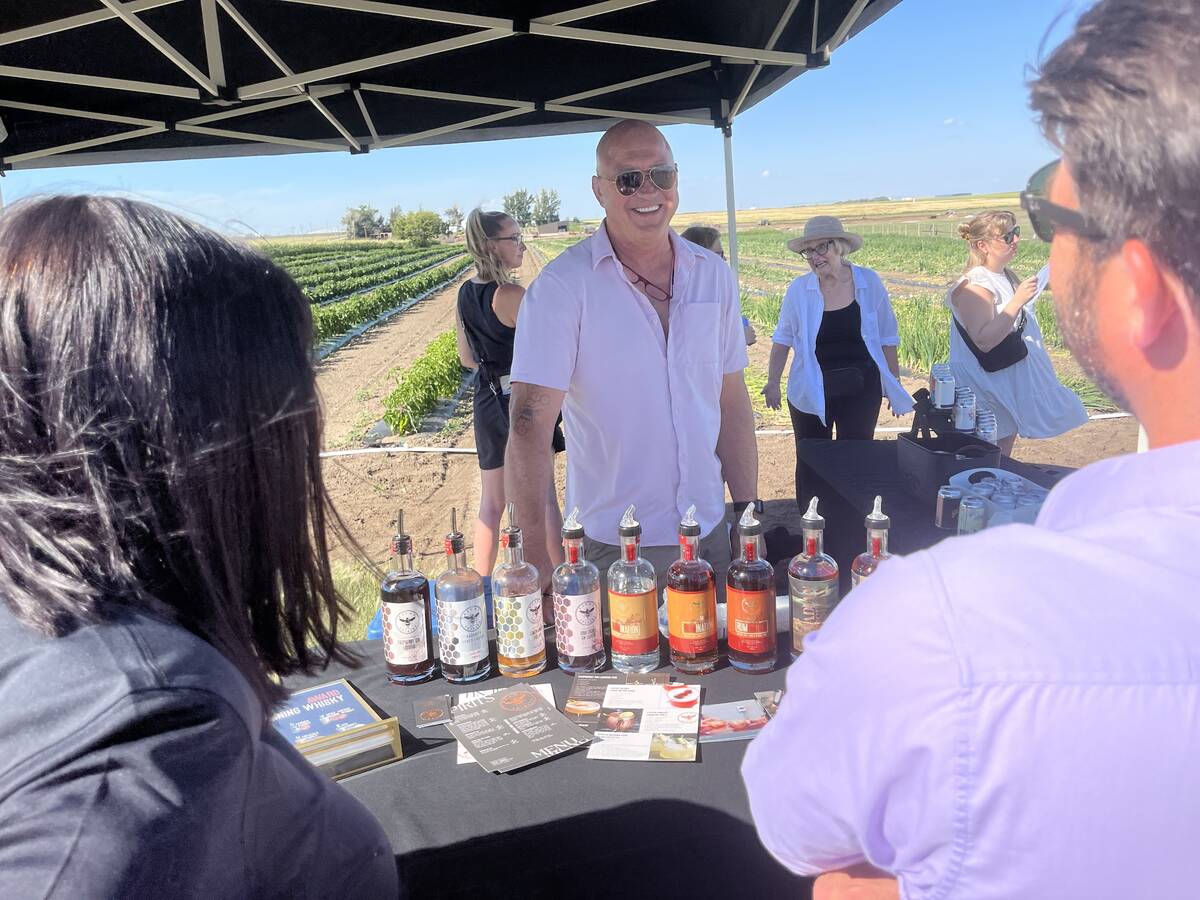Part of trend | Big chemical companies are acquiring manufacturers of biological products
Agricultural chemical multinationals are taking a keen interest in companies that produce green crop protection products.
“Just in the last month or so, we’ve seen three acquisitions of that nature,” said John Cross, one of the founders of Philom Bios, a Saskatoon inoculant manufacturer that was bought by Novozymes in 2007.
The latest deal is BASF’s $1.02 billion purchase of Becker Underwood, a world leader in the production of seed-applied biological products, such as inoculants, seed treatments and biopesticides.
The company is expected to post sales of $240 million in the fiscal year 2012 to customers in more than 70 countries.
Read Also

From farmer to award-winning distiller
Pivot Spirits showcases transition from farmer to distiller with provincial award-winning results in Alberta for Lars Hirch
It has 10 production sites around the world, including an inoculant manufacturing facility in Saskatoon, which started out as MicroBio RhizoGen Corp.
Cross was surprised by the price BASF paid for Becker Underwood.
“It’s staggering.”
He said it demonstrates how eager chemical companies are to expand to include environmentally friendly inputs and to capitalize on relationships that exist between biological products and synthetic chemicals.
Cross said multinationals were slow to recognize the opportunity, but they now appear sold on the idea of incorporating microbial or natural products into their line-ups.
Bayer CropScience announced in August that it had completed its $425 million purchase of AgraQuest Inc., a supplier of biological pest management and seed treatment products.
“The global market for green products is expected to increase significantly over the years to come,” Bayer chief executive officer Sandra Peterson said in a news release.
Syngenta announced Sept. 19 that it acquired Pasteuria Bioscience Inc. for $86 million with additional deferred payments of up to $27 million.
The companies are developing a biological product to control nematodes in soybeans, corn, cereals, sugar beets and vegetables.
“This is a further example of our strategy of incorporating biological controls within our integrated offer to growers,” Syngenta chief operating officer John Atkin said in a news release.
Cross expects growers will reap the rewards.
“That’s the intention of these acquisitions in all cases — bring more value to farmers. If that don’t happen, it’s a bad investment,” he said.
“It speaks volumes to a new phase of higher performing, safer, environmentally friendly products (being) more widely available. That’s got to be good for our farmers and society.”
He also believes early-stage companies that are developing novel biological products for farmers will now have access to more capital to complete their work.
Anne Burt, director of communications with BASF, said Becker Underwood will be incorporated into the company’s newly created functional crop care business unit.
“(Becker Underwood’s) work in biologicals is highly complimentary to our portfolio, and they have a strong record of success with customers,” she said.
“It’s certainly our intention to grow together.”
Burt said Becker Underwood staff will be able to draw upon BASF’s experience and resources to enhance its seed treatment and biological control product lines.
Cross thinks that’s more than just lip service.
“(BASF) bring decades of experience, they have the infrastructure and they have capital,” he said.
The deal is subject to regulatory approval in the eight countries where Becker Underwood has manufacturing plants. The transaction is expected to close by the end of this year.















